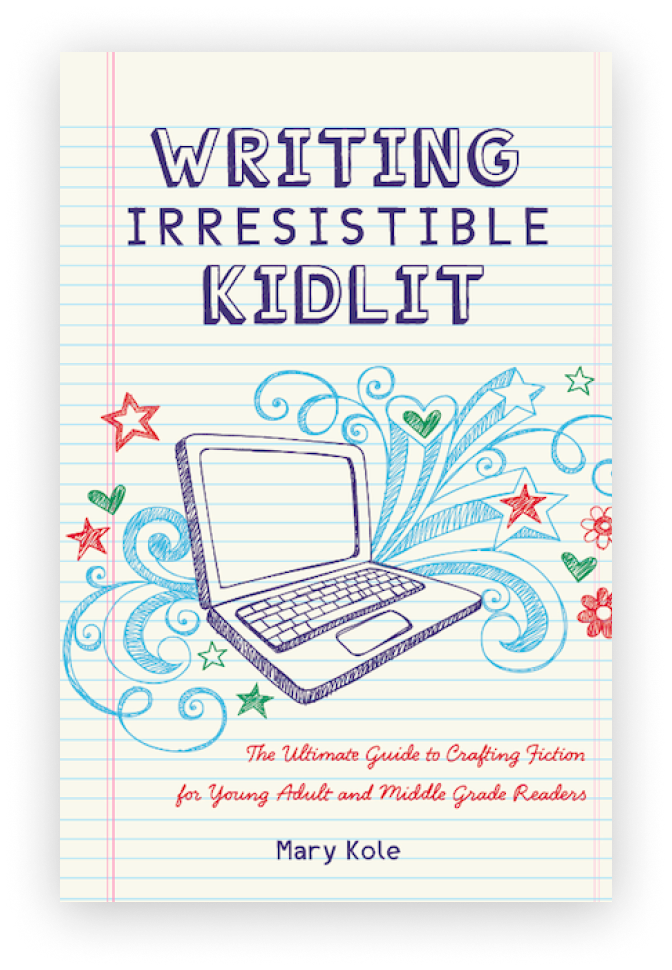Brainstorming Creative Book Ideas
By Mary Kole
Mary Kole is a former literary agent, freelance editor, writing teacher, author of Writing Irresistible Kidlit, and IP developer for major publishers, with over a decade in the publishing industry.
Some writers have more book ideas than they can ever write, and others struggle to come up with any book ideas at all—or book ideas they deem to be worthwhile. Most writers sometimes feel stuck while outlining, plotting, or writing when they try to come up with compelling elements to flesh out their book premise. Here are some thoughts to help when you’re having a hard time nailing down successful book ideas in your own creative projects.
Creative Brainstorming for Your Book Ideas
1. Write Every Day
The best way to improve your creative writing is to simply write every day (or regularly, if you can’t yet commit). It doesn’t matter what you write about, just get in the habit of a daily writing practice. The more you write, the better you’ll become at it. When you have writer’s block, freewriting can help you come up with the right book ideas. And don’t forget to journal about your life. You never know where ideas will come from, so be sure to take notes.
2. Read a Lot
If you want to be a better writer, you need to read a lot. Reading like a writer will help you develop your own style and voice. It will also give you a better understanding of grammar and syntax. It will help you refine your book ideas by knowing what else is being published in your category—and outside of it. Don’t just keep an eye on what your favorite genres and categories are doing. Read widely.
3. Join a Writer’s Group
Joining a writer’s group is a great way to get feedback on your work and to meet other writers in and outside your category. You can find writer’s groups online or in your local community. Sharing your work with others and receiving writing notes is a crucial part of growing and developing in your craft.
4. Take a Creative Writing Workshop or Class
Taking a creative writing workshop is another great way to improve your skills. You’ll have the opportunity to receive feedback from your instructor and classmates, and you’ll also learn about different aspects of the craft, such as character development and plot structure. You can also meet other writers in a creative writing class or workshop, which might give you a new critique partner or get some new book ideas flowing!
5. Find a Writing Partner
Finding a writing partner is another excellent way to improve your creative writing skills. A writing partner can provide helpful feedback and encouragement, and they can also help keep you accountable to your writing goals. They’ll have insight into book ideas, both on a large scale and with individual plot points. If you are lucky enough to find a writing partner you trust, you can share book ideas with them at an early stage and get some validation or redirection.
6. Set Some Goals
Setting some specific goals for your writing can help you stay on track and motivated. Even as you wait for book ideas, keep writing and reading. You never know where book ideas will come from, or when they will strike. Decide how much you want to write each week or month, and then make sure you stick to that goal. You can also set goals for specific pieces of writing, such as finishing a short story or poem within a certain timeframe. You’ll find that your book ideas muse shows up when you do—so put that butt in your chair.
7. Get Inspired by Music, Art, and Nature
One of the best ways to jumpstart your creativity is to get inspired by music, art, and nature. Spend some time listening to music that moves you, looking at artwork that speaks to you, or spending time in nature observing the world around you. These activities will help spark new book ideas for your writing. For more on this topic, check out Julia Cameron’s The Artist’s Way.
8. Keep a Journal
Keeping a journal is an excellent way to capture ideas when they come to you so that you can use them later in your writing. Whenever something inspires you or piques your interest, jot it down in your journal so that you don’t forget it later on. Even if this means waking up in the middle of the night to write book ideas down. Keeping a journal indicates commitment to your craft. Capture your brainstorming.
The most important thing you can do on the quest for more book ideas is to keep going. You will land on some book ideas to explore before you know it, and one of them might even become the book that makes your writing career.
This post contains affiliate links.

Click here to purchase Writing Irresistible Kidlit, my book on fiction craft for MG and YA novels, out from Writer's Digest Books. This will show you my writing craft philosophy and give you lots of valuable advice, including tips for the novel revision process and self-editing. There are over 35 example novels cited and discussed throughout. It’s a valuable resource for any writer’s toolkit.
Click here to purchase Irresistible Query Letters, my book on query letters, including over forty examples with comprehensive notes on each one. There’s a ton of submission advice, best practices, and insider information in these pages, and you’ll really enjoy seeing what other writers are doing in the slush.
Click here to purchase Writing Interiority: Crafting Irresistible Characters, my book on interiority and character creation. Explore your protagonist’s thoughts, feelings, reactions and interpretations, expectations, and inner struggles to create a rich, immersive experience. This guide will empower you to create characters who live and breathe on the page, fostering an unbreakable bond with your audience.





